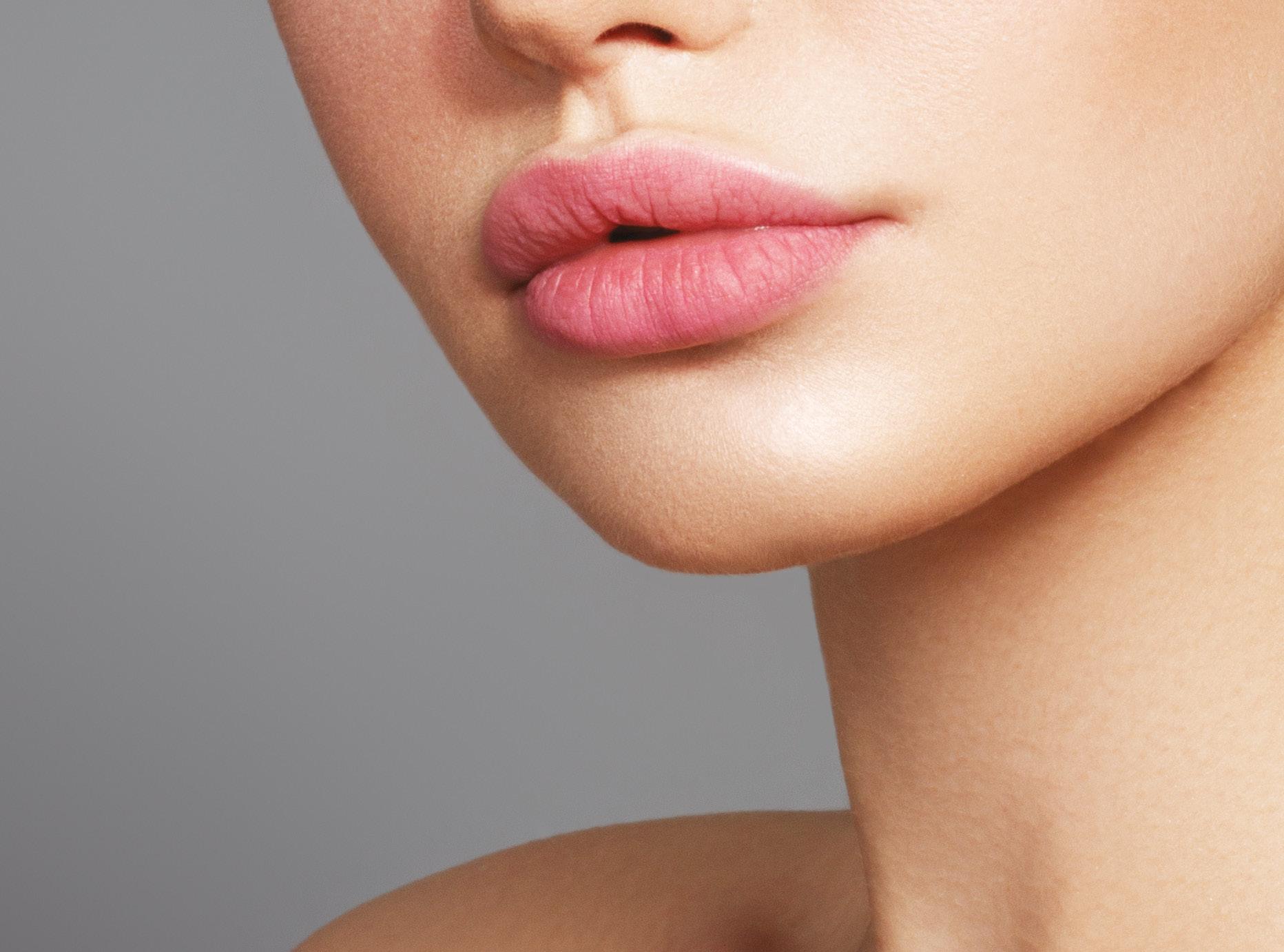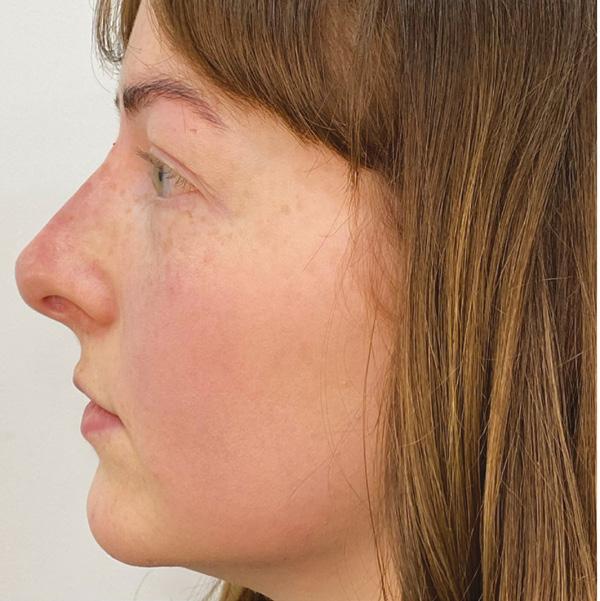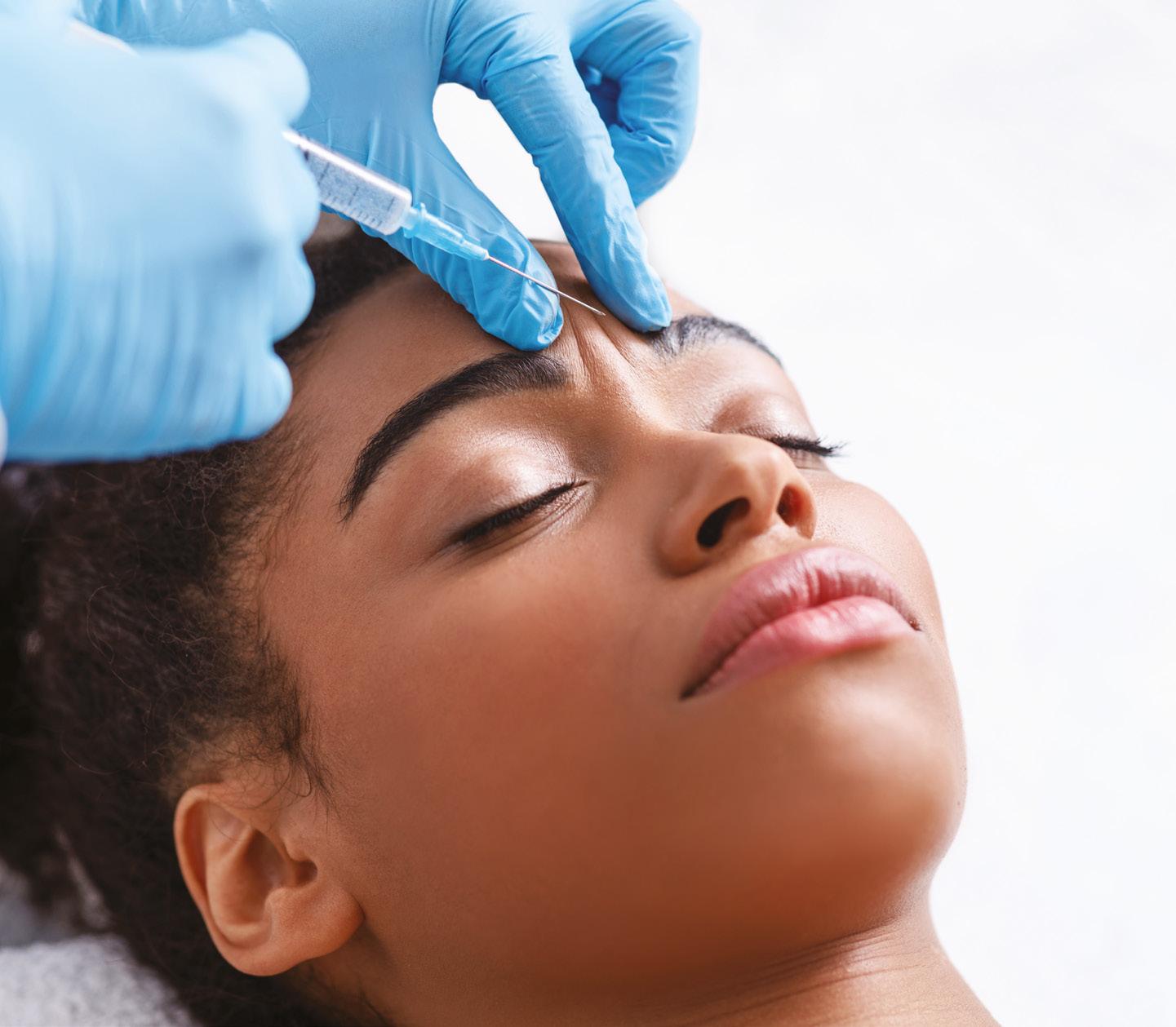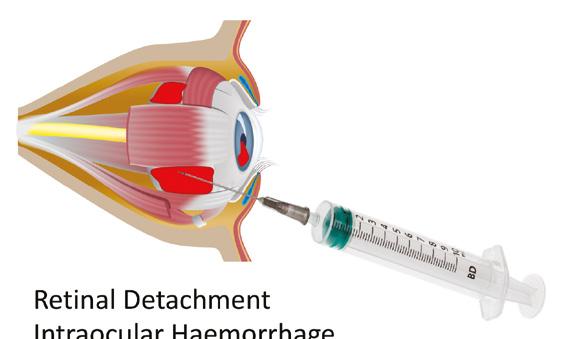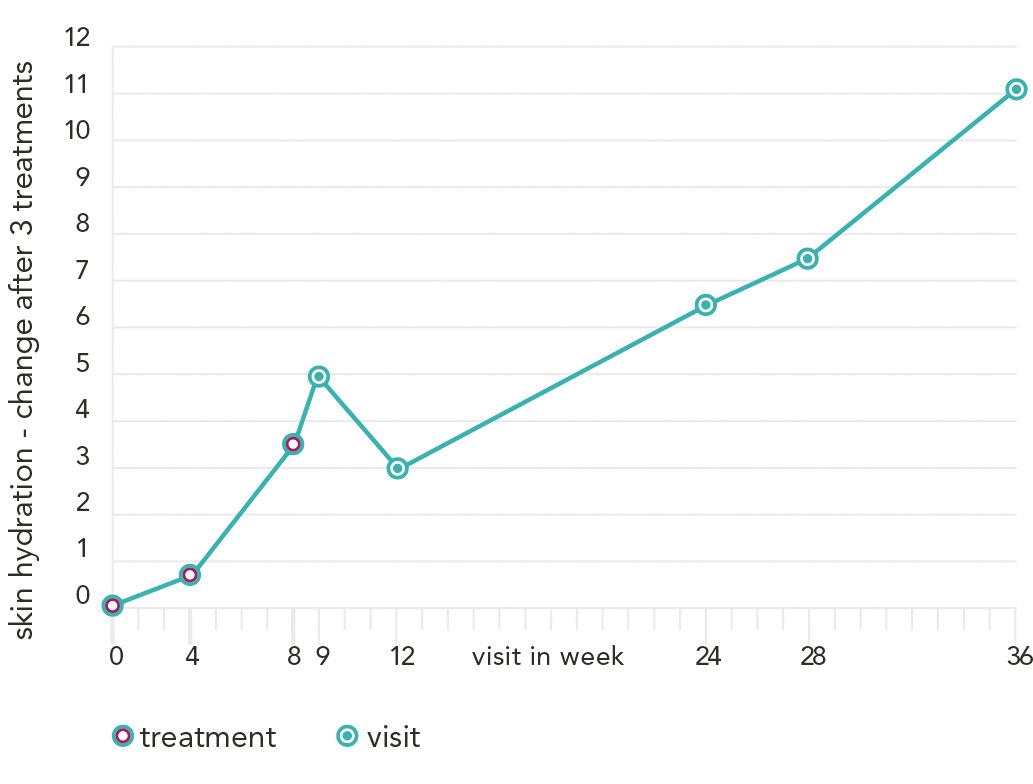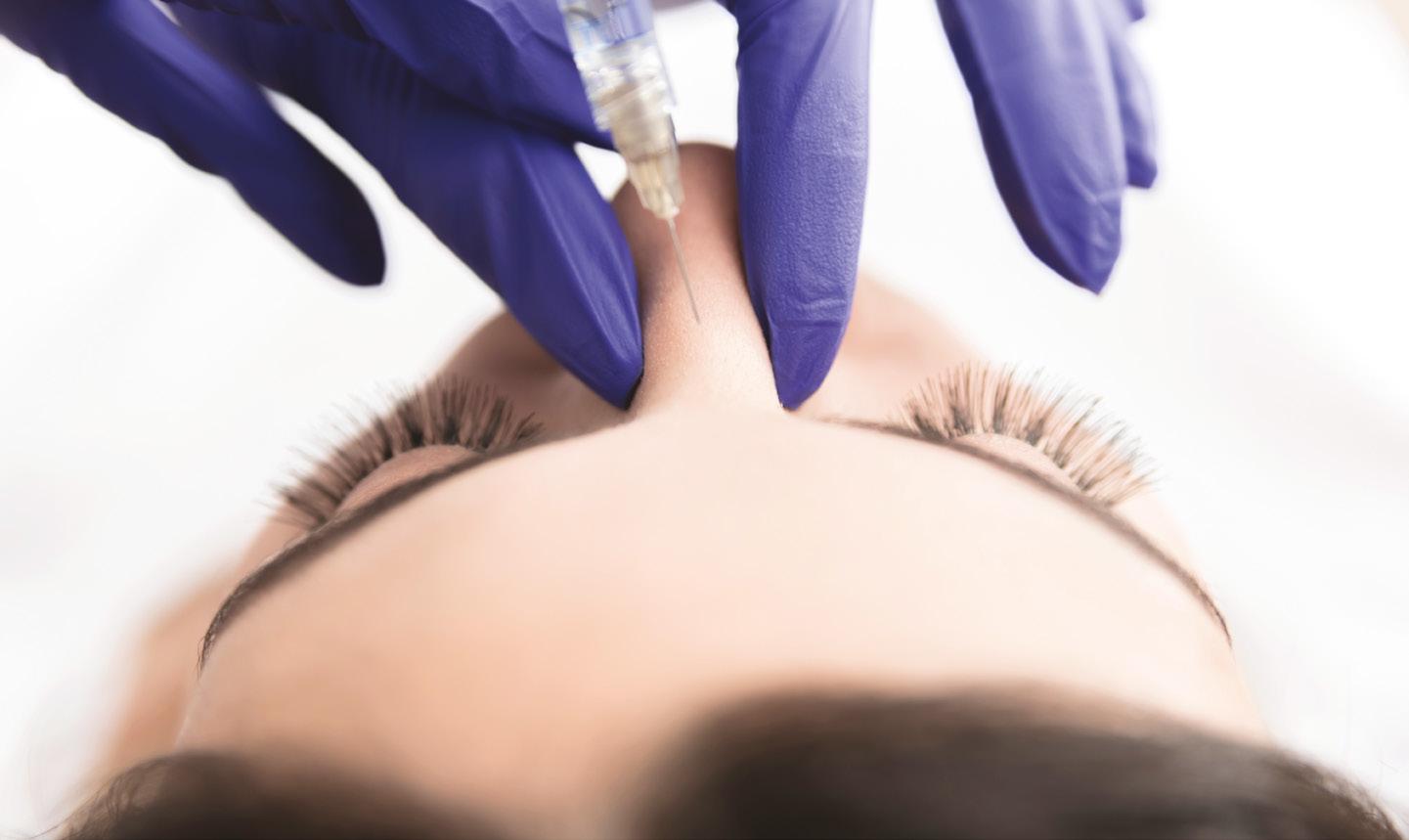@aestheticsgroup
@aestheticsjournaluk
Exploring Mental Health and Aesthetics Nurse prescriber Claire Newman provides an overview of motivations for non-surgical cosmetic procedures and mental health The importance of physical appearance is not a new concept and has links to evolutionary theories relating to youth, attractiveness, and reproduction.1 According to Darwin’s theory of sexual selection, specific physical characteristics have evolved not because it helps with survival, but because of the benefits of reproduction, with reproduction being the main aim.2 Through the ages, cultures and generations have sought ways to improve their appearance, consequently influencing the abundance of procedures available today. This article will explore the motivations for aesthetic treatment, and how mental health considerations impact these decisions.
Factors for treatment motivation A person’s mental state fluctuates resulting in a changeable perception of how they perceive themselves, from day to day or week to week. This perception of oneself can have a significant impact on procedures both pre- and post-treatment. It is important to understand a person’s motivations for seeking out cosmetic procedures to ensure safe practice. Having said that, Maisel et al. claim there is little known information surrounding the motivations behind the pursuit of cosmetic procedures.3 The authors of this study, consisting of 511 participants, concluded that reasons for seeking treatments were for themselves rather than to please others. Some motivations included a desire to improve confidence and wellbeing (67.2%), seeking procedures to treat themselves (61.3%) and seeking preventative treatments or to minimise the risk of further ageing (53.3%). Note this study used a small sample size and did not include men.3 In his book, plastic surgeon Dr Panagiotis Milothridis claims that motivations to undergo cosmetic procedures are multifaceted, stating that previous theories on vanity and psychopathology are obsolete.4 In his 2020 paper he also proposes that personality traits and how people perceive themselves impacts on reasons for undergoing cosmetic procedures.1 According to Walker et al., research demonstrates the impact of older media systems such as television and radio having an influence on cosmetic procedures.5 The authors claim there is less research on more modern forms such as Instagram, Facebook and Snapchat, but acknowledged it is a powerful influence focusing on the perfect body image. This is turn can lead to dissatisfaction in a person’s appearance and therefore influencing and motivating to undergo cosmetic procedures.5 The American Academy of Facial Plastic Surgery assert that social media is a crucial element when deciding to undertake cosmetic procedures.6 Other motivations include pressure from peers and the media.7 Thompson et al. claim that the perception of beauty is strengthened and communicated through the combined influence of social and cultural factors which includes the media, peers, and family.7 Hopkins et al. propose that celebrities have an impact on people choosing to undergo cosmetic procedures.8 An example of this is Kylie Jenner – when she revealed that she had lip fillers it resulted in a considerable increase in searches for the procedure online.9 It should be noted that celebrities/influencers can project unobtainable goals, which is further complicated with the use of filters on photos to idealise appearance such as Snapchat and Instagram filters. Taking all this into consideration, a person’s motivation for seeking out non-surgical cosmetic procedures is not simple and varies from individual to individual and day to day. Consequently, the treating practitioner needs to take all these factors into consideration during the pretreatment consultation and formulate a realistic treatment plan which combines a holistic mental health assessment whilst ensuring that the patient is suitable for treatment.
Aesthetics
aestheticsjournal.com
The complexities of mental health Mental health is not a new concept and is a fundamental component of a person’s physical health. Historically, there has been a lot of stigma associated with mental health, and people still sadly hide their illness and do not wish to talk about it. The stigma is slowly reducing, but still exists, and, for whatever reason, patients coming into our clinics may not always disclose that they have an illness and/or are receiving treatment for their illness. According to the World Health Organization, ‘Mental health is related to mental and psychological wellbeing. Mental health includes our emotional, psychological, and social wellbeing. It affects how we think, feel, and act. It also helps determine how we handle stress, relate to others, and make choices.’10,11 According to NHS England, one in four people experience mental illness at some point in their life.12 This means if you are seeing 12 patients a day, potentially three of those patients would have a mental illness or would have had a mental illness as some point in their life. In a 1960 study of 98 patients reporting minor flaws, 72.4% undergoing plastic surgery suffered with mental illness.13 In 2007 study of 140 patients undergoing cosmetic surgery, 43% had a suspected psychiatric disorder.14 In 2008 other authors claimed that patients requesting cosmetic procedures have a history of mental illness, however, their research is limited to body dysmorphic disorder (BDD), narcissistic personality disorder and histrionic personality disorders. They neglect to discuss all mental health conditions within their research.15 This research is limited and not representative of the general population as well as being out of date. In 2019, Jang et al. proposed that having a mental illness is linked to dissatisfaction following cosmetic procedures, therefore, assessing patients for predictors prior to treatment optimises results. They conducted a study comprising 1,000 patients and found that 44.1% of the patients wanting plastic surgery had/has a history of mental illness. They concluded that mental illness is common with patients seeking cosmetic procedures and advise awareness.15 A 2021 study by Bascarane et al. reviewed 120 articles looking at the prevalence of mental illness and cosmetic procedures. Despite the research being predominantly focused on BDD, they found that 4-57% of
Reproduced from Aesthetics | Volume 8/Issue 8 - July 2021










